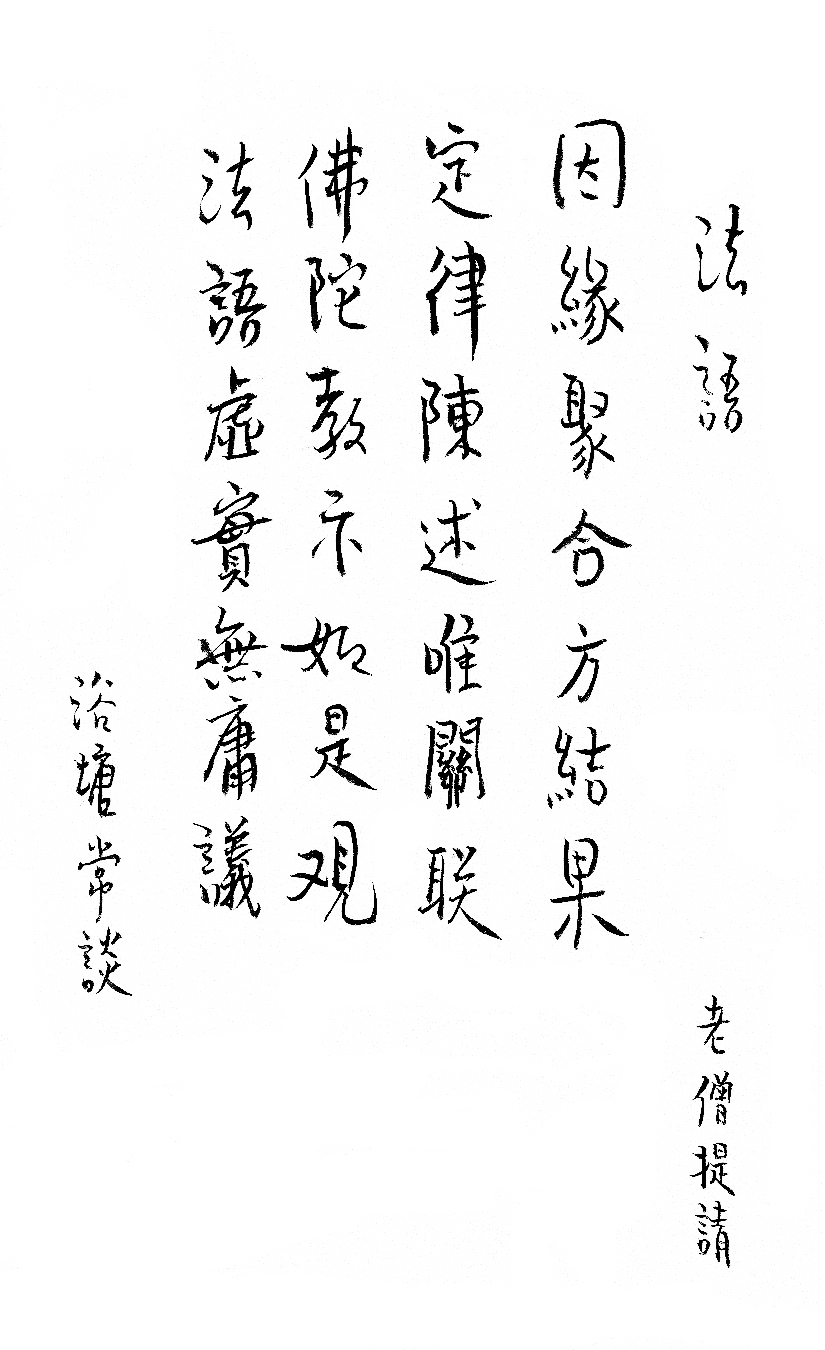因緣聚合方結果,定律陳述唯關聯;
佛陀教示如是觀,法語虛實無庸議。
跋
定律所述乃因緣與結果之關聯,因此皆出乎條件語句之形式—「若如此,則如彼」。定律只陳述「此」與「彼」間之必然關係—「有此必將有彼」。至於「此」與「彼」各別之虛實,則非定律所計。
佛所述乃真理之法則,故謂之「法語」。因此經中佛陀之開示亦多為條件語句。若能明白條件語句之重點乃在指示其前後二部分之必然關聯,則不需計議其前後部分各別語句之虛實。
二○○一年十二月二十日
養和齋 於加州
 |
Statements of Law
----- Original Message -----
From: "Yutang Lin"
To: "Dharma Friends"
Sent: Tuesday, November 27, 2007 1:46 PM
Subject: 5 Poems in Calligraphy_篇翰墨詩作:法語、名實、何必、好惡、匯歸
As requested by you-know-who I had written you-know-what into calligraphy.
應您知是誰之提請,我已將您知是啥寫成翰墨了。
10 files attached.
十個檔案附呈。
May all beings attain Enlightenment soon!
願一切眾生早日成佛!
Yutang
鈺堂
Statements of Law Yutang Lin
Causes and conditions meet to yield results;
Statements of laws assert only relationships.
Buddha's teachings understood in this light;
No need to argue about factual or fictitious.
Comment:
Statements of laws express relationships between causal conditions and their consequences. Therefore, they assume the form of a conditional statement, i.e., "If this be the case, then that would be the case." Laws assert only the necessary connection between this and that-if this is the case, then that must be the case. As to the truth or falsehood of this or that individually, it is of no concern to the laws.
Buddha's teachings are expressions of laws of truth. Therefore they are called "Dharma," statements of laws. That is why in the sutras Buddha's words are often expressed as conditional sentences. Once it is understood that the point of a conditional sentence is to indicate the necessary connection between its two parts, then one no longer need to argue about whether its individual segments are true or false.
Written in Chinese on December 20, 2001
Translated on January 13, 2002
El Cerrito, California
[Home][Back to list][Statements of Law]